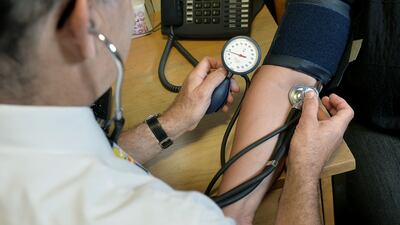High blood pressure could be treated with an injection every six months instead of a daily tablet as part of a new trial into the condition.
Scientists are testing the approach in what they said is a world first in how hypertension, or high blood pressure, could be treated.
About a third of adults in the UK have high blood pressure but many might not know it, the National Health Service says.
While it often does not have noticeable symptoms, if hypertension is not treated it can increase the risk of heart attacks and strokes.
About 100 patients across the UK will be part of the 630 patients worldwide involved in the new research by Queen Mary University of London and Barts Health NHS Trust.
People who have high blood pressure diagnosed typically take tablets once a day to control the condition, researchers said.
The British Heart Foundation said while there was not always an explanation for the cause of high blood pressure, most people developed it because of their diet, lifestyle or a medical condition.
This study, funded by Alnylam Pharmaceuticals and supported by the National Institute for Health and Care Research, is due to run for three years.
“We are excited to be trialling this first-of-its-kind approach to research if it is safe and effective for the treatment of high blood pressure," said Dr Manish Saxena, study lead and deputy clinical director at Queen Mary University.
“It is early days but our ultimate hope is that the treatment proves to be a safe and more manageable, practical solution to tackling high blood pressure.
“A twice-yearly treatment with injection underneath the skin would provide a better alternative to taking daily medication, which we believe would be welcome news for patients and make treating hypertension more convenient.”














